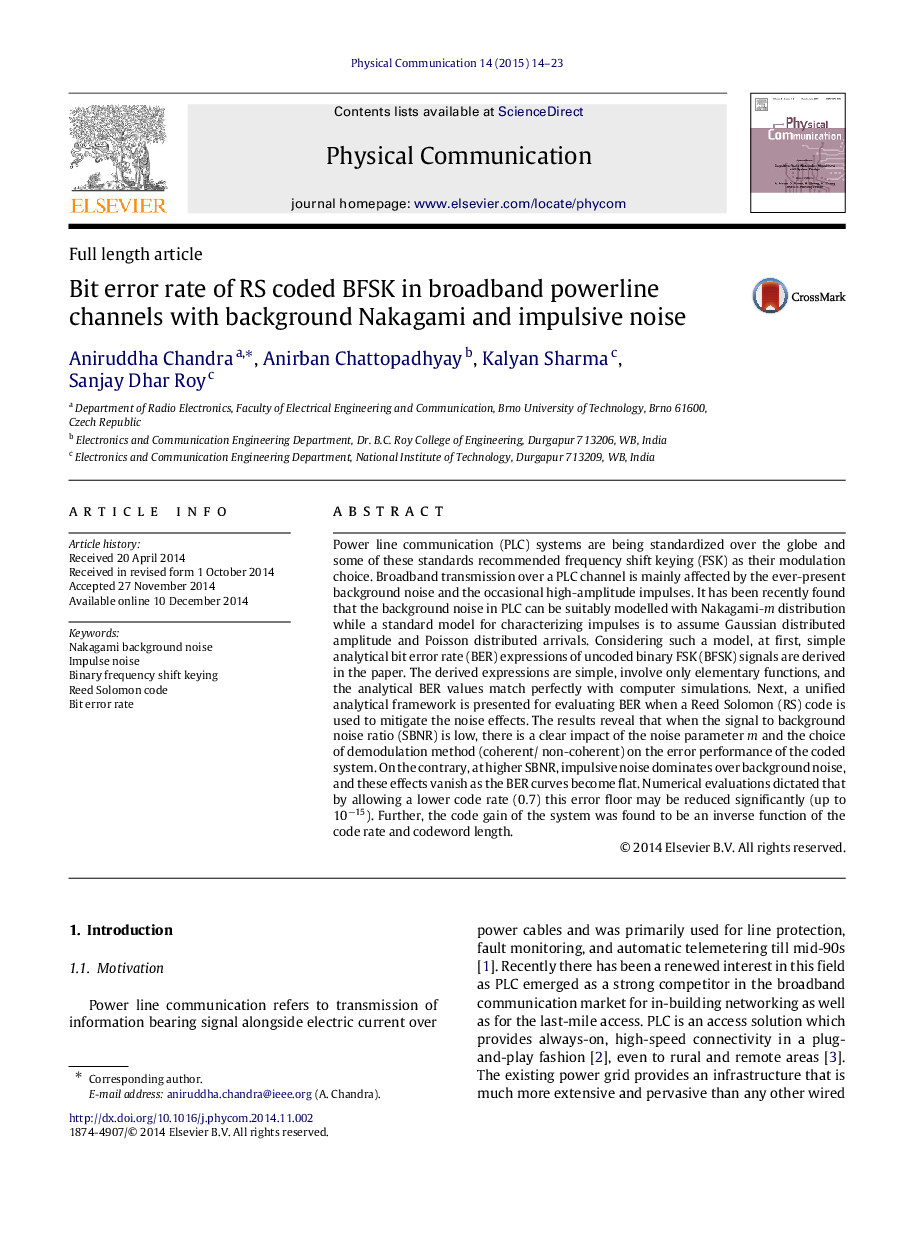| Article ID | Journal | Published Year | Pages | File Type |
|---|---|---|---|---|
| 466305 | Physical Communication | 2015 | 10 Pages |
Power line communication (PLC) systems are being standardized over the globe and some of these standards recommended frequency shift keying (FSK) as their modulation choice. Broadband transmission over a PLC channel is mainly affected by the ever-present background noise and the occasional high-amplitude impulses. It has been recently found that the background noise in PLC can be suitably modelled with Nakagami-mm distribution while a standard model for characterizing impulses is to assume Gaussian distributed amplitude and Poisson distributed arrivals. Considering such a model, at first, simple analytical bit error rate (BER) expressions of uncoded binary FSK (BFSK) signals are derived in the paper. The derived expressions are simple, involve only elementary functions, and the analytical BER values match perfectly with computer simulations. Next, a unified analytical framework is presented for evaluating BER when a Reed Solomon (RS) code is used to mitigate the noise effects. The results reveal that when the signal to background noise ratio (SBNR) is low, there is a clear impact of the noise parameter mm and the choice of demodulation method (coherent/ non-coherent) on the error performance of the coded system. On the contrary, at higher SBNR, impulsive noise dominates over background noise, and these effects vanish as the BER curves become flat. Numerical evaluations dictated that by allowing a lower code rate (0.70.7) this error floor may be reduced significantly (up to 10−1510−15). Further, the code gain of the system was found to be an inverse function of the code rate and codeword length.
